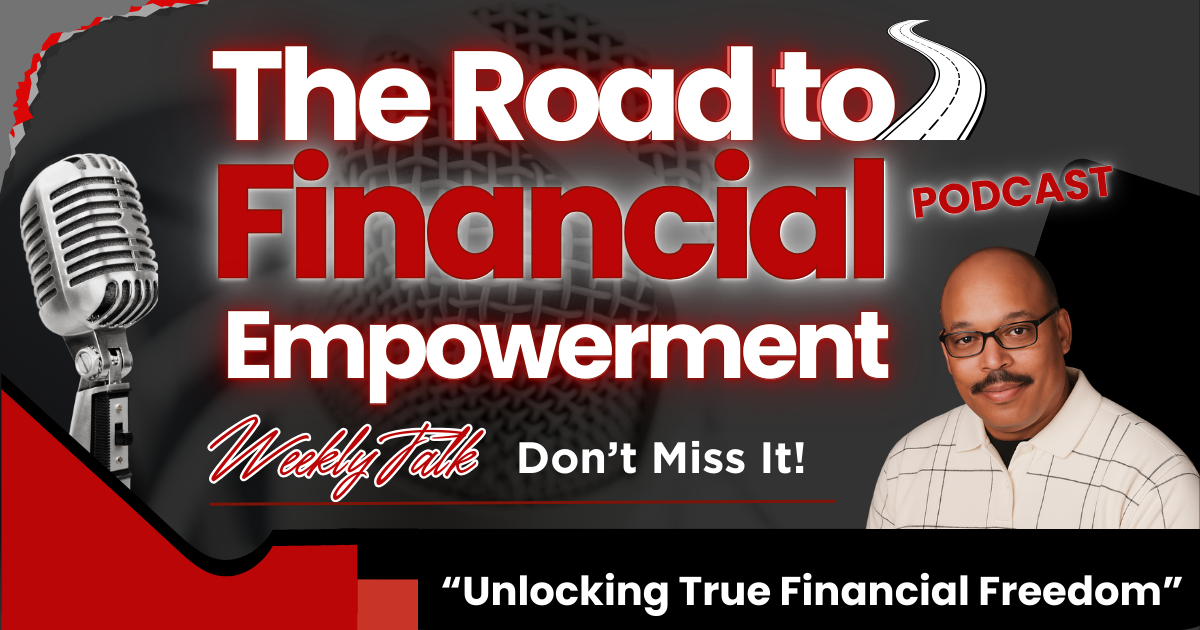Empowering Your Finance: A Guide to Financial Education
Navigating the Financial Maze: Why Education is Your Most Powerful Tool
In a world where financial decisions can make or break your future, how confident are you in making the right choices? For many, the complexity of personal finance creates anxiety and uncertainty, leading to missed opportunities and financial stress. The path to financial independence isn't about having more money—it's about having more knowledge to make informed decisions about the money you have.
Financial empowerment begins with education. Equipping yourself with essential financial literacy skills transforms you from a passive participant in your financial journey to an active future architect. This guide will walk you through understanding financial empowerment fundamentals, building a strong educational foundation, mastering strategic decision-making, navigating specialized planning areas, and staying informed in an ever-changing financial landscape. Join us as we explore how financial education can become your most powerful tool for creating the life you deserve.

Understanding Financial Empowerment
A. Definition and importance of financial independence
Financial independence is having sufficient personal wealth to cover all necessities without requiring active employment. This state is typically achieved when your investment income exceeds your regular expenses. The importance of financial independence cannot be overstated—it provides freedom from financial stress, creates opportunities for life choices based on personal fulfillment rather than monetary necessity, and establishes long-term security for yourself and your loved ones.
The journey toward financial independence begins with setting clear objectives through personal reflection on what independence means to you, establishing realistic financial targets, and creating a timeline for achievement.
B. The role of informed decision-making
Informed financial decision-making is the cornerstone of achieving financial empowerment. This process involves gaining comprehensive financial literacy across multiple domains, including budgeting, investing, debt management, and retirement planning.
Making informed decisions requires:
- Understanding your current financial position through tracking income and expenses
- Identifying opportunities for saving and investment
- Creating realistic budgets that include necessary expenses and savings allocations
- Building emergency funds to cover 3-6 months of living expenses
- Developing strategies for eliminating high-interest debt
- Making knowledgeable investment choices for long-term growth
When individuals make decisions based on solid financial knowledge, they gain confidence and control over their financial futures.
C. Benefits of financial empowerment for individuals and families
Financial empowerment delivers transformative benefits that extend beyond mere monetary gains:
- Enhanced quality of life: Reduced financial stress leads to improved mental and physical well-being
- Increased resilience: Emergency funds and diversified income streams protect against unexpected financial challenges
- Long-term security: Proper retirement planning ensures sustainable lifestyles after working years
- Educational opportunities: Financial knowledge enables families to plan for educational expenses
- Wealth building: Understanding investment principles allows for generational wealth creation
- Autonomy and confidence: The ability to make financial decisions without dependency on others
- Lifestyle flexibility: Options to pursue passion projects, career changes, or early retirement
Financial empowerment equips individuals with the mastery and autonomy necessary to shape their financial destiny through disciplined saving, informed investing, and proactive financial management.
Now that we have covered the fundamentals of financial empowerment, we'll explore how to build a strong financial education foundation. This foundation will provide the necessary tools and knowledge to begin your journey toward financial independence.

Building a Strong Financial Education Foundation
Building a strong financial education foundation is essential to achieve it now that we've explored financial empowerment.
Essential Personal Finance Knowledge
The fundamentals of personal finance include understanding how to manage money effectively across several critical areas. These include credit management, investing basics, banking principles, and recognizing the difference between assets and liabilities. Financial literacy begins with grasping how credit cards work, including interest rates and responsible usage patterns, to avoid falling into debt traps. Even in our digital banking era, tracking expenses remains valuable for maintaining financial awareness. Understanding paycheck deductions and monitoring your net worth are fundamental aspects of financial knowledge that contribute to overall financial health.
Developing Effective Money Management Skills
Budgeting forms the cornerstone of effective money management, allowing you to map out income and expenditures strategically. While some find it tedious, it's an essential practice for financial stability.
Another crucial skill is establishing and maintaining good credit, which impacts significant life decisions like renting or buying a home.
Debt management requires knowing your interest rates and developing repayment strategies to avoid long-term financial pitfalls. The principle of spending less than you earn remains one of the most straightforward yet powerful money management practices. An emergency fund equivalent to three to six months of expenses provides critical financial security and should be a priority in your money management system.
Resources for Continuous Financial Learning
Investing knowledge is vital to building wealth and securing retirement, beginning with understanding instruments like 401(k)s and IRAs. Learning about the home-buying process, including mortgages and associated fees, is another area often overlooked in traditional education but essential for financial growth.
Breaking these financial basics into manageable components makes them less daunting and more approachable. Regular engagement with financial topics through books, courses, and trusted online resources fosters comfort and competence in personal finance, allowing for continuous learning and growth in your financial education journey.
With this strong foundation of financial education in place, we'll next explore how to apply this knowledge through Strategic Financial Decision-Making, where we'll examine how these fundamentals translate into practical choices that align with your long-term financial goals.

Strategic Financial Decision-Making
A. Proven strategies for optimizing financial resources
Money talks, but it won't speak clearly if you don't know how to listen. Financial literacy isn't just about knowing terms—it's about making your money work harder for you.
Start by tracking every dollar. Most people can't tell you where 20% of their income goes each month, which is money slipping through their fingers.
Create a 50/30/20 budget:
- 50% for needs (housing, food, bills)
- 30% for wants (dining out, entertainment)
- 20% for savings and debt repayment
Build an emergency fund before anything else. Three to six months of expenses in a high-yield savings account gives you breathing room when life throws curveballs.
B. Simplifying complex financial choices
Complex financial decisions don't need complex approaches. Break big choices into smaller steps:
- Define what you want (the actual goal)
- Research your options (limit to 3-4 choices)
- Compare side-by-side using consistent criteria
- Sleep on major decisions
Regarding investments, remember that simplicity beats complexity almost every time. A straightforward index fund portfolio often outperforms complicated investment strategies.
C. Setting and achieving meaningful financial goals
Financial goals without deadlines are just wishes. Make yours SMART:
- Specific: "Save $6,000 for a down payment," not "save money."
- Measurable: Track progress weekly
- Achievable: Challenge yourself without setting impossible targets
- Relevant: Align with your values and long-term vision
- Time-bound: Set clear deadlines
Celebrate small wins along the way. Financial empowerment isn't just about reaching the destination—it's about growing your money management skills throughout the journey.

Specialized Financial Planning Areas
Now that we've explored strategic financial decision-making, let's examine how these principles apply to specialized financial planning areas that are crucial at different life stages.
College Planning Strategies
College planning requires early action and strategic saving. As highlighted in the reference material, parents in their late 30s and 40s should prioritize education planning while not compromising retirement savings. A practical approach includes:
- Building a dedicated education fund separate from emergency savings
- Exploring low-cost index funds for long-term growth
- Creating a balance between education savings and retirement contributions
Remember that financing your children's education should never come at the expense of your retirement security—this is a key principle of financial literacy and proper money management.
Retirement Planning Essentials
Retirement planning is a lifelong journey that evolves through different life stages:
- In your 20s and 30s: Focus on establishing retirement accounts to benefit from compound growth
- In your 40s and 50s: Ramp up retirement savings, clear debts, and prepare for future expenses
- In your 60s: Shift investment strategies from growth to income generation
The reference material emphasizes maximizing retirement account benefits and developing a post-retirement career plan. Reviewing health insurance options to address rising medical costs is crucial as you approach retirement.
Investment Approaches for Different Life Stages
Your investment strategy should adapt as you progress through life:
- Early adulthood: Invest in low-cost index funds for long-term growth potential
- Middle years: Diversify investments and ensure adequate insurance coverage
- Pre-retirement (50s): Strategic retirement savings become paramount
- Retirement years: Secure life savings through income-generating investments
Avoid high-interest debt and impulsive investments at any stage, as these can derail your financial plan. Instead, focus on building wealth through consistent, strategic investing aligned with your current life stage.
As we discuss staying informed on financial matters, remember that these specialized planning areas require continuous education and adaptation to changing economic conditions and personal circumstances.
Staying Informed on Financial Matters
Now that we've explored specialized financial planning areas, it's essential to maintain your financial education through continuous learning and staying updated on current trends.
Following Current Economic Trends
Staying informed about economic developments is crucial for making sound financial decisions. As of 2025, the financial landscape continues to evolve with significant trends affecting personal finance. The increasing implementation of mandatory financial education in schools across 26 U.S. states by 2024 demonstrates the growing recognition of financial literacy's importance. This educational movement has shown measurable results, with studies indicating teens who receive financial education are 30% more likely to develop regular saving habits.
Climate change is also becoming a critical factor in financial education, with consumers needing to understand how environmental shifts impact insurance costs and property values. Recognizing these economic trends allows you to adjust your financial strategies proactively.

Utilizing Blogs and Newsletters for Ongoing Education
Blogs and newsletters from reputable financial organizations provide valuable resources for continuing your financial education. The National Endowment for Financial Education (NEFE) offers regular updates on financial literacy developments, including research reports examining financial education progress and identifying improvement areas.
As of April 2025, NEFE released a comprehensive report highlighting achievements and challenges in financial literacy education. These resources can help you stay current with financial knowledge resources and wealth-building education approaches.
Leveraging Social Media for Financial Insights
Social media platforms are increasingly valuable sources of financial information. The digital financial app market is projected to reach $1.5 billion by 2025, offering accessible financial knowledge through platforms like Khan Academy's free courses.
Gamified financial education apps are particularly effective, with studies showing they can enhance information retention by 25%. Additionally, artificial intelligence is personalizing financial education, with 60% of financial institutions expected to adopt AI for educational purposes by the end of 2024.
Social media also provides awareness about fraud prevention, which is crucial as scams become more sophisticated. Research shows that educated consumers are 40% less likely to fall victim to financial fraud, making these platforms essential for protecting financial well-being.
Conclusion
Financial empowerment isn't just about accumulating wealth—it's about gaining the knowledge, skills, and confidence to make informed decisions that align with your goals. Throughout this guide, we've explored the fundamentals of financial education, from building a strong foundation to making strategic decisions and addressing specialized planning areas. By staying informed on financial matters, you're positioning yourself to navigate economic challenges more resiliently.
Your journey toward financial independence is ongoing. We invite you to continue learning through our "Financial Freedom Insights" blog, subscribe to our newsletter for regular updates, and connect with us on social media. Remember, financial empowerment isn't a destination but a lifelong process that gives you greater control over your resources and ultimately leads to greater freedom and security in all aspects of your life.
"If you want to thrive in today's economy, you must challenge the status quo and get the financial education necessary to succeed" - Robert Kiyosaki

"If you found this breakdown on Empowering Your Finance: A Guide to Financial Education helpful, show your support by subscribing to the Financial Freedom Insights newsletter below for the latest information, resources, strategies, and tools in personal finances, and share this article with your network. Let's grow this community of informed investors together!"
Share











